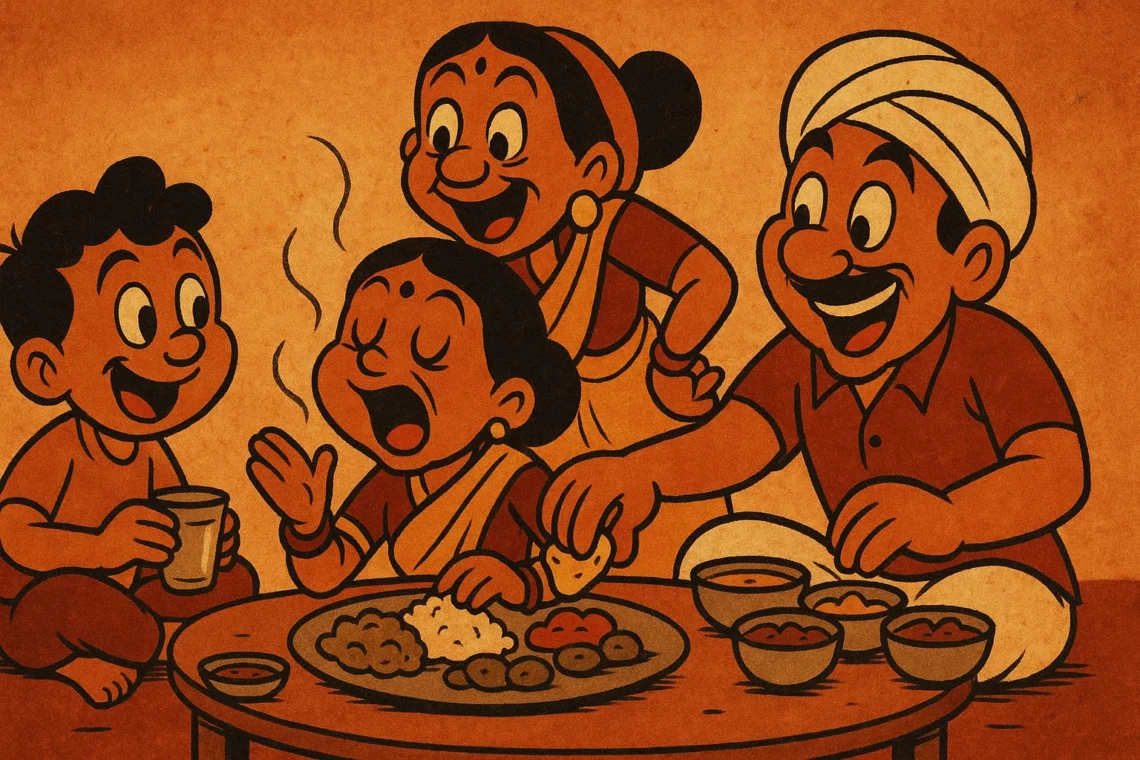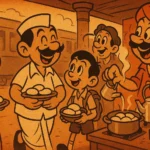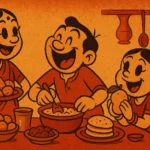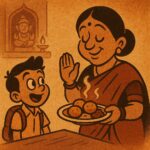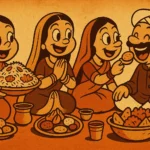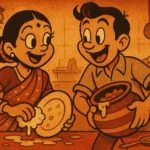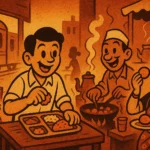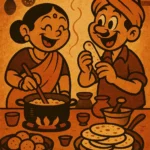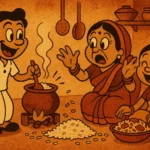There’s a moment in every Indian household — somewhere between the tea being poured and the first dosa hitting the tawa — when it happens. A sharp voice from the kitchen. A shout down the hall. A full-volume name call that vibrates through the walls and into your half-awake body: “Get up, your idli is getting cold!” Or “How many times should I call you?” Or the classic, “You’ll eat at 11 and call it breakfast?”
And just like that, breakfast becomes real.
Until then, it’s just steam and possibility. The hiss of pressure cookers, the clatter of plates being pulled from shelves, the occasional shuffle of someone moving like a ghost in a pre-coffee haze. But once the yelling starts — once someone raises their voice in the name of hot food and delayed arrivals — you know: the day has officially begun.
Yelling = Love, But Louder
It took me years to understand that the yelling wasn’t anger. Not really. It was choreography. Timing. A language of urgency spoken only in the mornings. Because in a house where breakfast was cooked fresh and served hot, there was a tight window. Miss it, and your upma would go dry. Miss it, and your paratha would lose its flakiness. Miss it, and you’d face the ultimate judgment: “Then eat it cold. What do I care?” (They cared deeply.)
The yelling came with rhythm. My mother’s voice hit a different pitch when the chutney was just ground and the idlis had five minutes left in the steamer. My father’s call from the hallway had a particular bass when he warned us the omelet was already flipped. And once my grandmother got involved? No one dared to move slowly. Her calls came with a rolling pin in hand and a glance that could toast bread.
The Morning Opera of Chaos
In our house, silence in the morning was suspicious. If no one had yelled by 8:15, it meant something was off. Maybe someone was sick. Maybe there was no breakfast (a rare tragedy). Maybe people were eating cereal (a deeper tragedy). But when the house echoed with, “You want sambhar or not?” — it felt right. It felt alive.
The yelling wasn’t limited to summoning people. It extended to decisions: “Do you want podi on your dosa or not?” “Who finished the last of the peanut chutney?” “If you don’t like poha, make your own!” These weren’t debates. These were declarations — loud, fleeting, and always forgiven by the second cup of tea.
Now I Miss the Noise
Living alone in a different country, breakfast is quiet. Too quiet. The toast pops up without drama. The microwave beeps politely. I eat oatmeal most days — warm but emotionally uninvested. Sometimes I catch myself calling out into the silence, mock-yelling, “Who left the milk out again?” just to feel the space respond.
And when I visit home now, nothing makes me smile more than hearing my name yelled from the kitchen. It’s not about the food, really. It’s about being remembered. Expected. Fed. Loudly.
The Love Hidden in Loudness
We often mistake love for softness. But in Indian kitchens, love is loud. It sizzles, it clangs, it shouts. It doesn’t ask, it declares. And breakfast — that daily ritual of urgency and warmth — is where that love comes through best. In the yelling. In the rushing. In the voices raised not in anger, but in care masquerading as complaint.
So yes, in our house, breakfast wasn’t real until someone yelled. And honestly? I wouldn’t want it any other way.
Born in Mumbai, now stir-frying feelings in Texas. Writes about food, memory, and the messy magic in between — mostly to stay hungry, sometimes just to stay sane.

